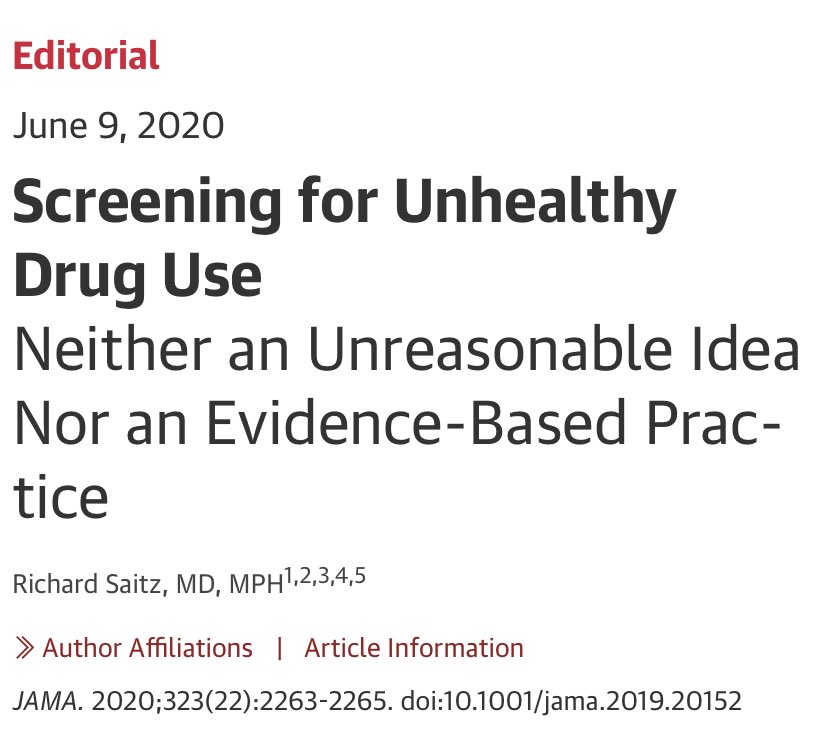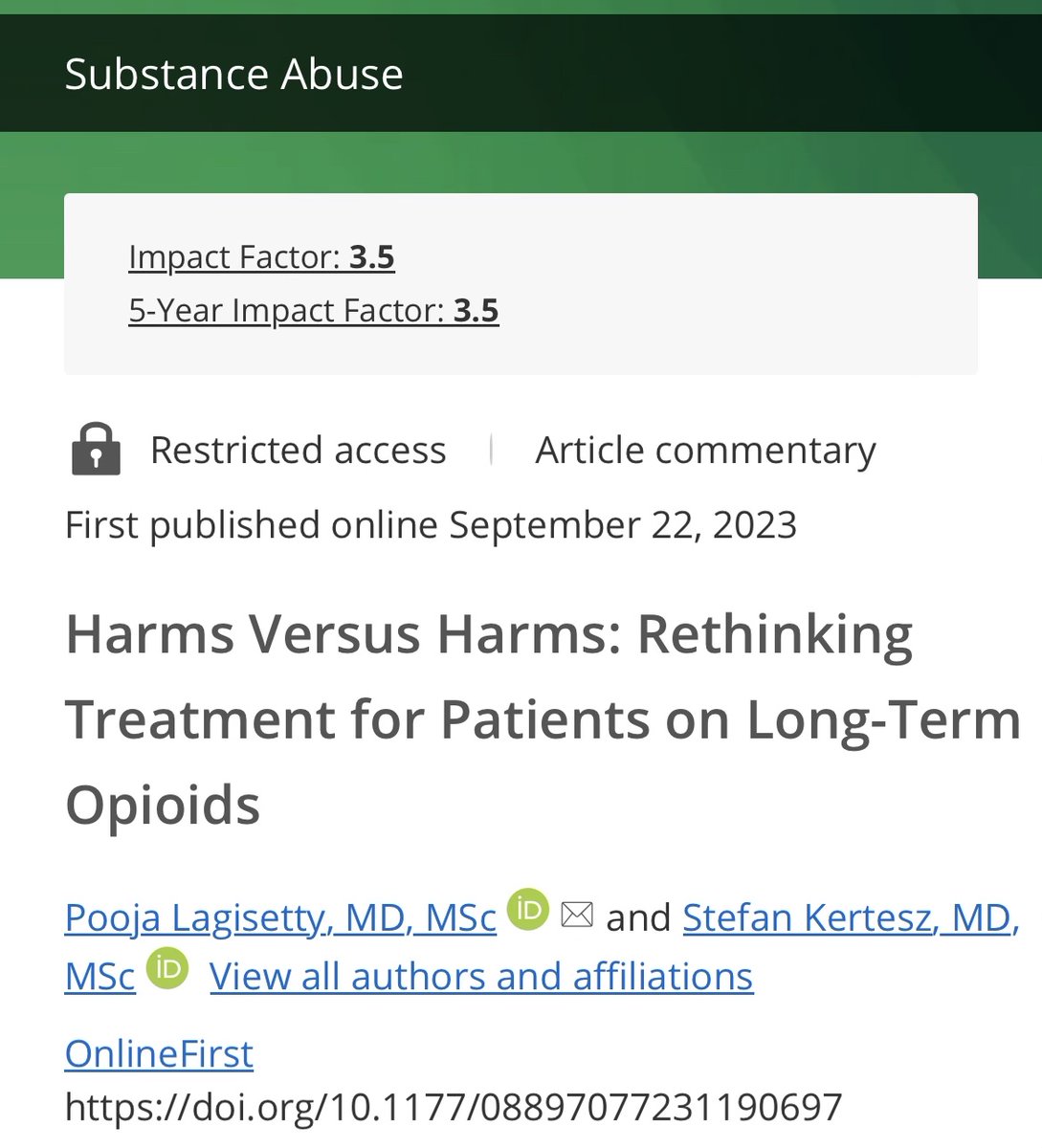1/We salute experts who insist on *evidence* for preventive screening recommendations. Question-based screening for drug use in primary care has been endorsed by #USPSTF and @UnhealthyAlcDrg points out is it not evidence based practice jamanetwork.com/journals/jama/… 

2/For screening to be “evidence based”, when you apply it to people who have no sign of the disease, the screening produces significant benefit & no (or minimal) harm. #USPSTF has new different standard:that treatment works for folks with problems, mostly seeking treatment 

3/Of course there are lots of reasons docs should wish to know whether patients happen to use drugs. That is not in dispute as a matter of common sense. But... 

4/There are, to my view, several problems that emerge with proposing that doctors “should screen” as an evidence based protective intervention. It strongly suggests a mistaken notion that docs detect & fix drug use the way we do with early cancer. Sorry that is a shibboleth
5/When we focus on docs screening as “fix” we misdirect policy. People who use are making choices in real time,constrained by biology & circumstance, but they are responding to social &environmental& life history realities. It’s happy talk to assume your PCP will “detect and fix”
6/Once USPSTF endorses a recommendation, primary care docs will of course be penalized for not doing it rigorously across all patients, even when that particular action does not help them. This is misallocation of attention.
7/Again, just to affirm, I’m perfectly comfortable asking many questions of my patients, including drug use. It is not offensive. But there are penalties when we waive standards of evidence for embracing medical practice standards. Perhaps anyone reading Tweet #7 agrees. FIN/
• • •
Missing some Tweet in this thread? You can try to
force a refresh

















